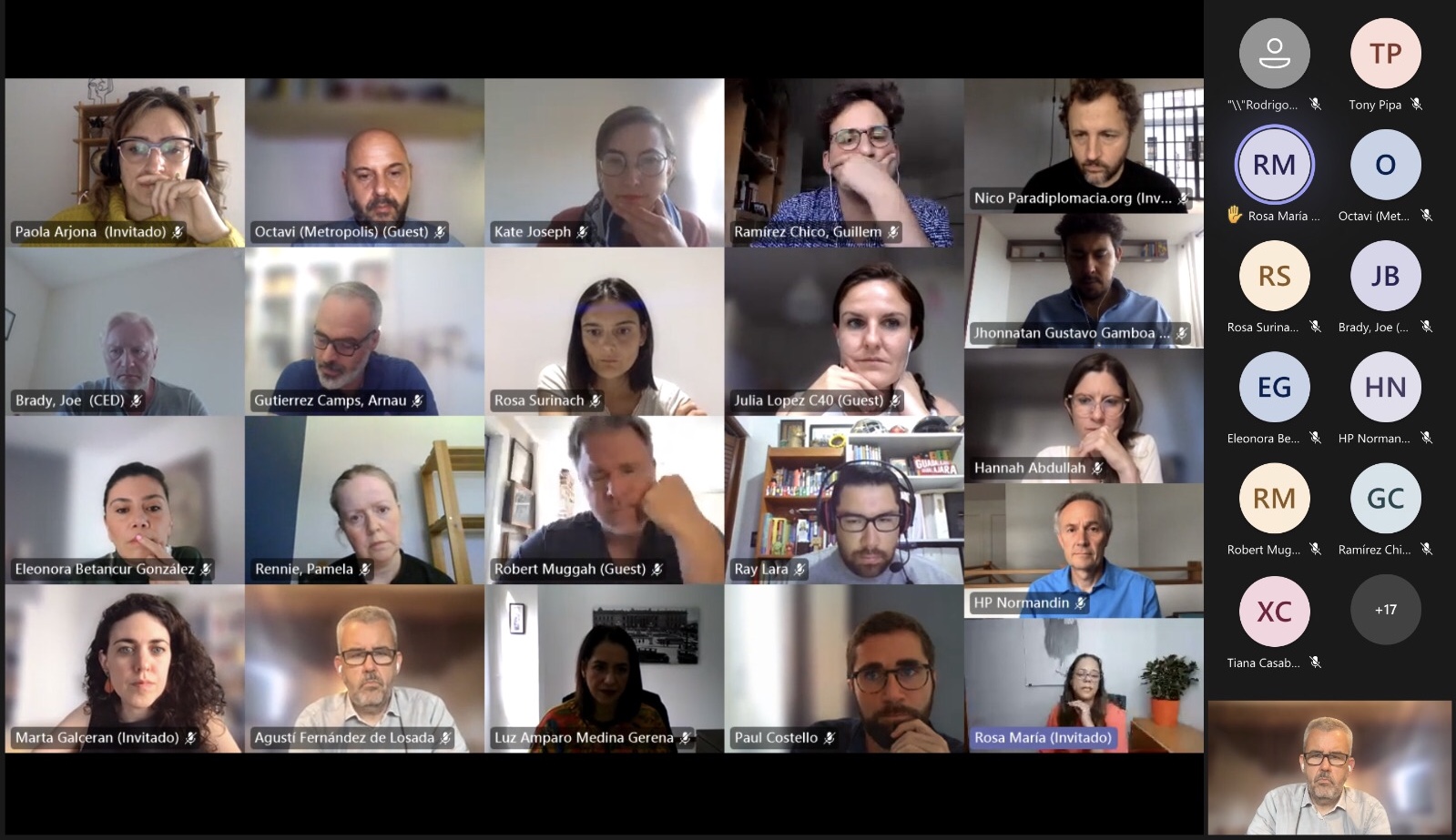
Gerardo Pesantez, World Bank on Flickr
Open debate on measuring the impact of local government networks
What mechanisms do city networks use to ensure policy impact among members? How can we measure the impact of the advocacy activities, knowledge dissemination and policy implementation carried out by city networks? These are some of the questions that were discussed during the invitation-only online meeting Understanding the value proposition of city networks and measuring impact. The meeting took place on 14 July and brought together over 40 representatives from city networks, cities, think tanks and academia.
The digital seminar was organised by Metropolis, together with CIDOB’s Global Cities Programme and the Chicago Council on Global Affairs, and received support from Barcelona City Council. The seminar opens a pioneering debate around measuring the impact of local government networks like Metropolis.

These city networks—more than 200 entities and counting—provide a variety of services to their members and play a decisive role in helping them collectively address shared challenges. Broadly speaking, most city networks perform three types of functions, which are as follows:
Advocacy: They represent the collective interests of their members vis-à-vis other tiers of government and lobby on their behalf to include the urban voice in global policymaking. As a matter of fact, Metropolis works to amplify the voice of metropolitan leaders on the global stage and advocate for policies that give them the tools and resources they need to govern effectively.
Knowledge dissemination: There can be no doubt that city networks act as platforms for knowledge sharing and policy learning. Metropolis bolsters cities’ unique expertise so that large and often fragmented urban areas can strengthen their systems of metropolitan governance. Proof of this can be found with the Metropolis Learning Station.
Policy implementation: Beyond facilitating peer-to-peer learning and the exchange of information, most city networks devote significant efforts to helping to building the capacity of their members to respond to a variety of urban challenges, and to implement specific policies. In this regard, Metropolis focuses its capacity-building work with local governments on four key challenges—all while keeping up our longstanding push for gender equality across all of our work: urban growth, resilience, public legitimacy, and digital disruption.
However, the current overcrowded ecosystem of city networks suffers from a poor understanding of how such initiatives are perceived, experienced and valued by city network members. The debate around how to achieve policy impact and how it can impact be measured was moderated by Octavi de la Varga, Metropolis Secretary General. The seminar's conclusions will inform a policy paper to be published by CIDOB in the coming months. Undoubtedly, a new debate is opening up on helping city networks like ours to support their members, not only in responding quickly to emerging challenges, but also to finding opportunities to build more equitable, resilient, and prosperous societies.

